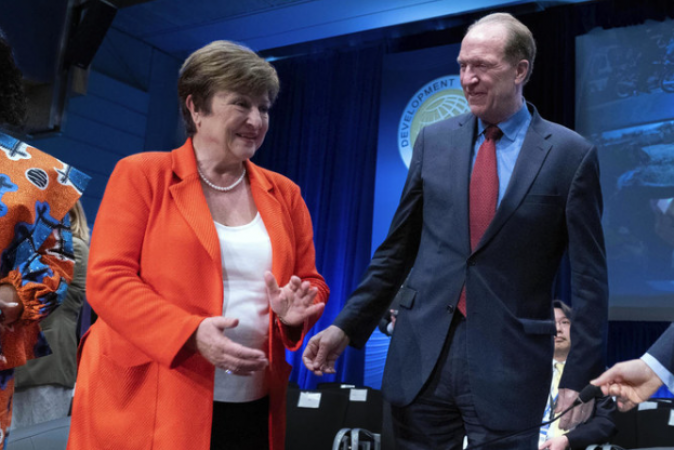
Washington: A "second Cold War" must be avoided at all costs, according to the managing director of the International Monetary Fund (IMF), who said that nations must do more to prevent this.
During a press conference at the official beginning of the World Bank and IMF's spring meetings, Kristalina Georgieva said, "I am among those who know what are the consequences of a Cold War: it is loss of talent and contribution to the world."
She continued, "I don't want to see that happen again," saying that everyone should "reasonably accept there will be some cost and there will be some fragmentation, but keep these costs low." The former Soviet satellite nation of Bulgaria is where Georgieva was born and raised.
She asserted that multilateral organisations like the World Bank and IMF have a crucial role to play in preventing the world from fragmenting into various blocs with negative economic repercussions.
The US-China trade war, the Brexit, and the Russian invasion of Ukraine, according to an IMF report released earlier this week, could cause trade fragmentation to increase and cause the global economy to shrink by up to 7%.
Georgieva argued that policymakers must "defend the interests" of their constituents. People everywhere will suffer if we don't become more rational, she warned.
The World Bank's outgoing president, David Malpass, stated earlier on Thursday at an occasion marking the official start of the spring meetings that progress had been made on a number of important issues for the World Bank and IMF.
He claimed that member nations reached agreement on a number of measures to strengthen the World Bank's financial capacity, enabling it to lend "as much as $50 billion of new financing" over the following ten years.
Also Read: Alarm raised by historians over removal of Muslim rulers from Indian textbooks
In order to expand some of these new regulations to other financial institutions and create a "new financial framework," French President Emmanuel Macron will host a summit in June, French Finance Minister Bruno Le Maire announced to reporters on Thursday morning at the IMF.
Malpass claimed that during a Wednesday roundtable discussion on debt, progress was also made. Representatives from Zambia, a nation engaged in advanced debt restructuring negotiations, as well as the private sector and the private sector for the first time participated in these discussions.
Leaders of the Bank and IMF claimed that progress had also been made in replenishing the low-income countries' lending facilities, which had been exhausted as a result of the simultaneous effects of the CoVD-19 pandemic and the Russian invasion of Ukraine.
In recent days, "substantial new pledges or contributions" have already been made by Ireland, Saudi Arabia, the United Kingdom, Portugal, and Japan towards replenishing these funds, according to Georgieva.
Both Georgieva and Malpass cautioned on Thursday that global inflation was still too high in many nations. "We expect central banks to stay the course in the fight against inflation, holding a tight stance to prevent a de-anchoring of inflation expectations," said Georgieva.
Additionally, she said, governments needed to improve the medium-term growth prospects for the global economy and work to lower their budget deficits.
Also Read: Tory peer worries that British Muslims will face backlash
Georgieva urged member states to push through the structural changes required to speed up the digital transformation, enhance the business climate in many nations, and speed up the green energy transformation in her remarks.
"We estimate that investments in renewable energy alone will require $1 trillion annually to support growth and jobs,"